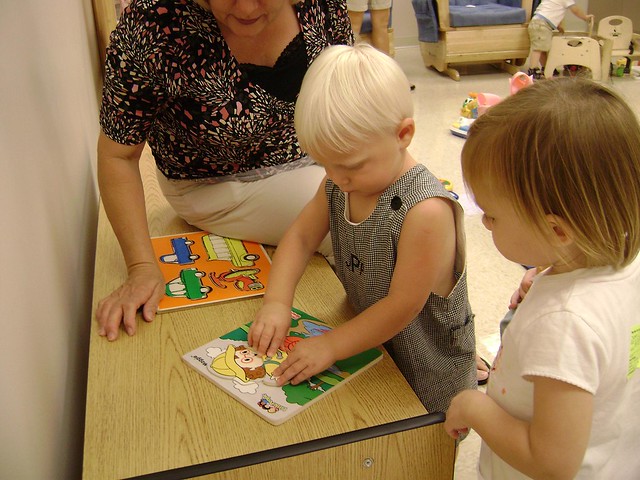Lifestyle
Study links preschool screen time to behavioural and attention problems

A new study links excessive screen time among preschoolers to behavioural problems they experienced at age five. (File Photo: First Hattiesburg/Flickr, CC BY-NC 2.0)
EDMONTON — A new study links excessive screen time among preschoolers to behavioural problems they experienced at age five.
The research looked at more than 2,400 families and compared children who got at least two hours of daily screen time to those who had less than 30 minutes per day.
Kids who spent more of their day in front of screens were five times more likely to exhibit clinically significant “externalizing” behavioural problems such as inattention. They were also more than seven times more likely to meet the criteria for attention deficit hyperactivity disorder, but without aggression.
University of Alberta pediatrics professor Piush Mandhane, who led the study, says screen time was associated with problems more than any other risk factor considered, including sleep, parenting stress, and socioeconomic factors.
And the impact is significant, he says.
“It’s a big study (and) it shows five-fold increases, seven-fold increases. These aren’t small numbers,” says Mandhane. “These are huge numbers of increased risk.”
Parents reported daily screen time that included TV, DVDs, computers, video consoles, smart phones and tablets.
On average, three-year-old children spent 1.5 hours a day in front of a screen while five-year-olds spent an average of 1.4 hours a day in front of a screen.
Current Canadian guidelines suggest a one hour daily limit for preschoolers and a two-hour daily limit for five-year-olds. Kids younger than age 2 should get no screen time.
Mandhane suggests that be reduced to less than 30 minutes a day, but stops short of discouraging screen time altogether. He says parents should teach kids responsible screen habits, and model that behaviour themselves.
“This is the perfect time to talk about what is a healthy relationship with screens,” he says of the early years.
Mandhane says the whole day matters, adding that the more time kids spend with screens, the less likely they are to get a full night’s sleep — another risk factor in problem behaviour.
A significant preventative factor turned out to be organized sport.
Those kids who got more than two hours a week of structured athletics were at decreased risk of developing behavioural issues.
Mandhane points out that “the activity needed to have structure,” and that general physical activity did not appear to have the same preventative impact.
The research used data from the CHILD Cohort Study, a national birth cohort study collecting a range of health, lifestyle, and genetic information from nearly 3,500 children and their families from pregnancy to adolescence.
The data was collected between 2013 and 2017, and includes the experiences of Karla Bergstrom in St. Albert, Alta.
Bergstrom, who has three boys, aged 8, 11 and 13, says she wasn’t surprised by the findings.
“If it’s a weekend and it’s miserable outside, the Canadian winter, yeah they may have way more screen time than we typically like them to have — and that’s when they get moody and there tends to be more back talk and more aggression,” says Bergstrom, whose boys each have iPads and share a gaming system.
“They really do need the fresh air and they need to play.”
She submitted information on her youngest son, Colby, now 8, who has been using mobile devices since he was a toddler.
Colby says he knows that too much screen time is not good for him and admits to arguing “some of the time” when his mom tells him to turn off his iPad. But he’s also been playing hockey and baseball since the age of three.
Bergstrom says Colby doesn’t have any behavioural issues. She credits sports and daily chores with helping him learn discipline.
The findings were published Wednesday in the journal PLOS One.
The study did not look at screen content or screen type, such as television, computer, or tablet.
Mandhane suggests parents limit screen time by setting firm “no-screen” times during the day, or putting a timer on a device so that it shuts down automatically after a set period of time.
“If a child learns that it’s automatic and it’s not going to turn on then they will go figure out what else to do because they’re not going to sit in front of a black screen for too long.”
— By Cassandra Szklarski in Toronto





















